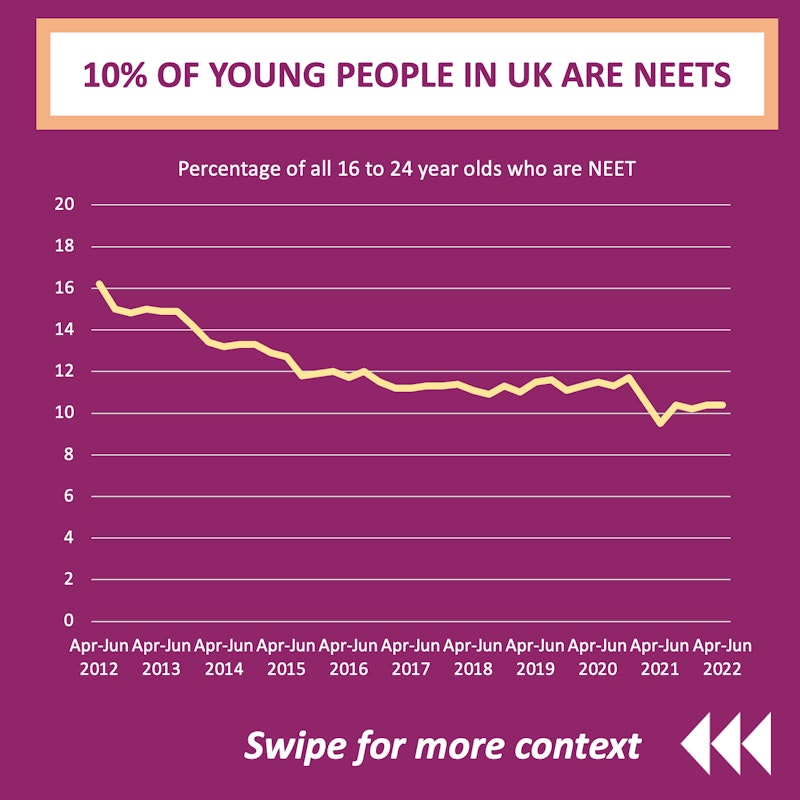In the News
Falling NEET percentage hides big differences across educational backgrounds

25th August 2022
10.4% of all people aged 16 to 24 years in the UK were not in education, employment or training in the 3 months to the end of June 2022.

The percentage of young people not in work, training or education has fallen over the last decade and remains below the level seen just prior to the pandemic. But having one in ten young people in this position still represents a failure of the functioning of the labour market. How best to encourage and incentivise these young people into training and work? Some countries have opted for an employment and training guarantee. Would a significantly higher minimum wage help or might this have some unintended consequences? There is a record level of unfilled job vacancies in the UK labour market but are they offering the pay and training that young people are looking for?
This figure is below the level seen just before the pandemic and is a substantial improvement on a decade ago when the percentage of NEETS in the UK labour market was 16 per cent.
NEETS represent a deadweight waste of scarce resources in the labour market.
To be counted, these young people must be outside of the formal post-16 education system and not in paid employment. People are considered to be in education or training if they on apprenticeship schemes, enrolled at school or college or perhaps on a government-supported employment or training programme.
Inactivity in the labour market at a young age can have seriously damaging effects on employment prospects in the years ahead and also the expected lifetime earnings for people affected.
Research data from Teach First has found that one in three young people in the UK from poorer backgrounds are not in sustained work or education, five years after sitting their GCSEs, compared with one in seven young people from wealthier backgrounds.
In some EU countries such as Germany and Denmark, the government offers a job and training guarantee for young people leaving school and college.
The Welsh government introduced Young Person’s Guarantee in 2021, designed to ensure everyone under the age of 25 would have the offer of support to gain a place in education or training, find a job or become self-employed.
You might also like
Economic and Social Costs of High Unemployment
Topic Videos
Update on the Gender Pay Gap
30th March 2018
Monopsony power - should car washes be licenced?
15th November 2018
Unemployment [Head Start in A-Level Economics]
Topic Videos
Joe Biden voices support of workers' right to join unions
2nd March 2021

Training Places - Apprentices quitting over poor quality of schemes
28th November 2022
Daily Email Updates
Subscribe to our daily digest and get the day’s content delivered fresh to your inbox every morning at 7am.
Signup for emails